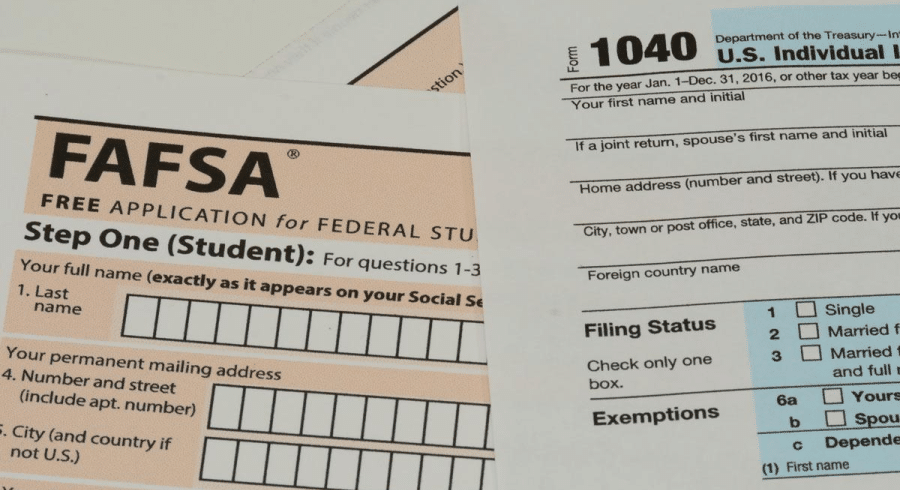Your IBM Benefits & Career: Financial Planning for Employees & Executives
Do you work at IBM? Get the resources you need and expert insights from financial professionals who specialize in helping IBM employees make the most of their compensation package and benefits.
Whether you’re a new IBM employee or you’ve moved up the ranks into a management or executive leadership role over a multi-year career, it’s important to make smart money moves with your income and employee benefits. For example:
✅ Do you know the right moves to make to get the greatest value from the IBM benefits available to you?
✅If you’re thinking about leaving IBM for another job or planning to retire from the company in a few years, are you taking the right steps today to ensure you will receive all of the compensation and benefits that you’ve earned?
Get the Most Value from Your IBM Benefits and Compensation Package
Throughout the year, IBM provides its employees and executives with updates about their benefits ranging from health insurance and health savings plans to retirement plans like a 401(k), deferred compensation plans, and stock options. While the company offers many useful resources and access to knowledgeable staff who can assist with questions, you’ll also find financial professionals not affiliated with IBM who specialize in helping IBM employees make the most of their income and benefits.
Whether you work in the IBM headquarters in Armonk, New York, another office location around the country, or remotely from home, you may have questions about your compensation package and benefits better suited for a financial professional who can offer unbiased advice and guidance.
For example, sensitive topics like discussing the steps you should take before quitting your job at IBM to work elsewhere, protecting yourself in advance of a corporate layoff, or deciding when you should plan to retire are all conversations that may be more comfortable with a trusted financial advisor.
Q&A: Financial Planning Tips For IBM Employees & Executives
Answers to IBM Employee Questions with Emily Rassam and Richard Archer (Archer Investment Management)
With a focus on serving professionals in the technology industry, the financial advisors at Archer Investment Management help their clients get the most value from their benefits and compensation package so they can enjoy life and feel confident about their financial future. Based in Charlotte, North Carolina, and Austin, Texas, respectively, Emily Rassam and Richard Archer specialize in offering financial planning services to IBM employees.
Q: As a financial advisor with experience helping IBM employees save for their retirement, how do you help them make the most of their employee benefits?
Emily: At Archer Investment Management, we specialize in working with mid-career technology professionals. We have several IBM employees as clients and are familiar with the company’s employee benefit plans, retirement plans, equity compensation packages, and ancillary benefits. More importantly, we are acutely aware of the financial planning needs of technology professionals and how their IBM benefits fit into an overall financial plan, including long-term planning, goal setting, tax planning, and estate planning. We start by building a financial personality profile and risk tolerance assessment to understand your relationship with money and your comfort level with risk.
Q: When you first speak with an IBM employee, what questions do you like to ask to understand their unique circumstances better and determine how you can best help them achieve their goals?
Richard: Our detailed onboarding process includes conversations about your life goals, how your finances play a role in maximizing happiness, and what it means to be intentional with money. We gather information about your benefits and compensation package, spending plan, short-term and long-term goals, taxes, estate plans, and insurance. This detailed planning process allows us to build a comprehensive picture of your financial life and how each piece of the puzzle fits together. You cannot make recommendations without examining the whole picture.
Q: Is there a particular benefit available to IBM employees you feel isn’t as well utilized or understood by employees as it should be?
Richard: Many of the IBM health care plans are high-deductible health care plans (HDHPs) that allow you to save in a Health Savings Account (H.S.A.). An H.S.A. is a very powerful savings vehicle that can be triple-tax-free and allows you to build long-term savings for future healthcare costs.
In 2023, a single individual can save up to $3,850 in an H.S.A., and a married couple can save $7,750. For IBM employees over age 50, you may save an additional $1,000 as a catch-up contribution. Once your H.S.A. reaches a minimum balance threshold, you can then invest the assets in a brokerage account. This is an underutilized benefit we regularly advise our IBM clients to maximize and build over time.
It’s often advantageous to avoid tapping your H.S.A. for healthcare costs so that you can allow the H.S.A investment account to compound over time; If you have the means, paying out-of-pocket for healthcare expenses can be a savvy tax move.
Get to Know Emily Rassam, Financial Advisor for IBM Employees:

View Emily’s profile page on Wealthtender or visit her website to learn more.
Q: Beyond IBM employee benefits for retirement savings, are there other types of benefits offered by the company that you find valuable to discuss with your clients (e.g., stock, education savings, health savings)?
Emily: Virtually all employees are eligible to join the employee stock purchase plan (ESPP). So long as you are scheduled to work for more than 21 weeks throughout the calendar year, are employed at the beginning and end of the offer period, and work 20 hours or more per week during 16 of the 21 weeks to meet eligibility, you may join the plan at the start of the next offer period. Dates of offering are normally January 1 and July 1.
This plan allows you to purchase IBM stock at a 5% discount and build additional wealth beyond the 401(k) plan by saving up to 10% of your pay into the ESPP plan, capped at $25,000 worth of shares each year. As mentioned earlier, you can also invest your H.S.A. money like you would a retirement account.
Q: For IBM employees thinking about leaving the company to accept a job elsewhere, what actions do you recommend they take before resigning and shortly thereafter?
Emily: Thankfully, you are immediately vested in the 401(k) employer contributions, so you will not be leaving any money on the table within the retirement plan. You may have received employee stock options or restricted stock units (RSUs) that are unvested. Look carefully at the dates on your grants and vesting schedules to determine when each RSU grant vests; this may impact your timing to leave IBM. You have 90 days after departing the company to exercise your stock options. Work with an advisor to determine which grants to exercise and the best way to fund this purchase.
Q: For IBM employees approaching retirement age, how do you recommend they prepare to make the transition from living off their salary to relying upon other sources of income?
Richard: Our detailed retirement planning process includes:
- A spending strategy tailored to your income goals
- Social Security timing recommendations
- Coordination of health care benefits
- Discussion around how your spending will change throughout retirement
- Stress-testing your retirement projection with many what-if scenarios
- Timing your exit to maximize any unvested incentive stock options (ISOs), non-qualified stock options (NSOs), or RSUs
Q: For IBM employees who have managed their finances on their own to this point, what would you suggest they consider to help them decide if they should begin working with a financial advisor at this stage in their lives?
Emily: There are many online tools and calculators. Where we find IBM employees get stuck is understanding how to prioritize goals and seeing the big picture. We help IBM employees organize their financial lives and provide accountability for reaching goals. Understanding whether you should use surplus dollars to pay down debt, save towards a short-term goal, or work towards a long-term aspiration (such as retirement or college education savings) can be challenging. For IBM employees planning with a spouse or partner, an advisor helps facilitate difficult conversations and moves the ball forward in your planning process.
Q: What are some of the unique financial planning challenges you commonly see among your clients who are IBM employees, and how do you help them overcome these obstacles?
Richard: One common obstacle we find is knowing when to diversify away from the concentration risk of holding a high percentage of your net worth in one company’s shares. Many of our IBM employee clients struggle with selling positions; it requires coaching, recognizing natural human biases, an evaluation of the risks, and careful diversification away from an outsized position.
Q: What questions do you recommend IBM employees ask financial advisors they’re considering hiring to help them decide if they’re a good fit?
Richard: If you were granted ISOs or RSUs, be sure to work with an advisor who understands how to incorporate those into your overall picture. Seek an advisor who can model the alternative minimum tax (AMT), understands the rules around qualifying and disqualifying dispositions, and knows how and when to diversify away from sizeable single stock positions, if appropriate.
Get to Know Richard Archer, Financial Advisor for IBM Employees:

View Richard’s profile page on Wealthtender or visit his website to learn more.
Q: Is there anything that comes up frequently in your initial meeting with IBM employees that surprises you?
Richard: We enjoy finding opportunities to help IBM employees maximize their ESPP plans, H.S.A. plans, and understand their non-traditional benefits such as behavioral health support, dependent care benefits, and unique solutions to redistribute workload and create flexibility in your work.
Q: For highly compensated IBM employees and executives, are there any special benefits you believe it’s important to take into consideration when preparing their financial plan?
Emily: Highly compensated employees at IBM are more likely to have been awarded stock options and/or RSUs. It’s important to evaluate your equity compensation as part of your overall offer for employment and understand how they fit into your multi-year financial plan.
Q: Is there a particularly memorable experience or a moment you recall with a client who worked at IBM when you realized they have unique opportunities and circumstances when it comes to their financial planning needs?
Emily: In recent meetings with an IBM employee, we modeled multiple stock option exercise strategies to reduce lifetime AMT. In some cases, it makes sense to exercise options slowly over many years. In this case, it made the most sense to exercise all vested options within three years. We determined which vested RSU shares we could sell to help fund the cost of exercising those shares.







